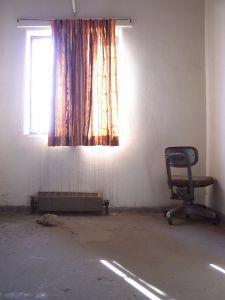
I told myself that I wasn't planning on writing about my experiences until something interesting happened. Well, today something interesting happened.
Last year, Mordechai Lightstone was a Roving Rabbi in Northwest Connecticut and here is an excerpt from his blogpost on the matter:
"Hello," came a voice on the other side, "Am I speaking to the rabbis?"
"Yes," intoned Mendel, "My name is Rabbi Mendel, how can I help you?"
"Well, my name is X, and I would like to set up a meeting with you guys and the residents of my Hospital."
"It would be our pleasure to visit, should we come tomorrow?"
There was a pause for a moment,
"It might be a little difficult, because this is a maximum security hospital, for forensic psychiatry patients."
"I see . . . you mean people with mental illness."
"Yes," X said, "but more accurately, psychiatric patients who have committed crimes."
Mendel stated his understanding of the situation, and then asked "So you're a warden there?"
"No," X said in an exuberant voice, "I'm an inmate here – I can't wait to see you!"
After pulling into the parking lot of the Connecticut Valley Hospital we searched for ten minutes for the entrance to the wing we were supposed to be visiting. After finding it, we had to fill out a brief form, deposit our phones in a locker, and go through a metal detector. We were then permitted to visit our guy, who I will call X, just like Mordechai did.
X came up to us and we slowly ambled on into a conference room. It seems that last year he was in an intensive security wing, while now he's in minimum, which means that he has a lot more freedom. After introducing ourselves, we began to discuss Judaism.
He's a fan of Mussar and we talked about how Mussar and Chassidus differ. This distinction colored the rest of our discussion, which ranged from reward and punishment to heaven and hell, Gan Eden and the world of Moshiach, suffering in Jewish thought, and the purpose of our existence. I did most of the talking and congratulate myself on having made at least a bit of sense. Once we were finished, X put on Tefillin and we parted amicably.
In the middle of our discussion on Teshuva, wherein I mentioned that Teshuva is properly not repentance but rather return, he mentioned something along the lines of "Well, I did a big sin. I killed my parents." I didn't quite know what to say, and just responded with a "hmm". The conversation continued unabated, and I explained how no one is inherently evil, no matter how heinous a crime he or she has committed. If anything, their soul has merely become covered; all they really need to do is wipe off the grime.
Once we got back to the Chabad House, I of course asked the Rabbi to explain what was going on here. In short: X was never all there mentally. At one point he wanted to go and study in Israel. His parents told him that he couldn't. He killed them both with furniture. He was found not guilty on grounds of insanity, and spent the next 16 years in a maximum security hospital.
When we visited X, he seemed perfectly normal. When I look back at our conversation, I think "Wow, he knows something about good and evil, huh?"

